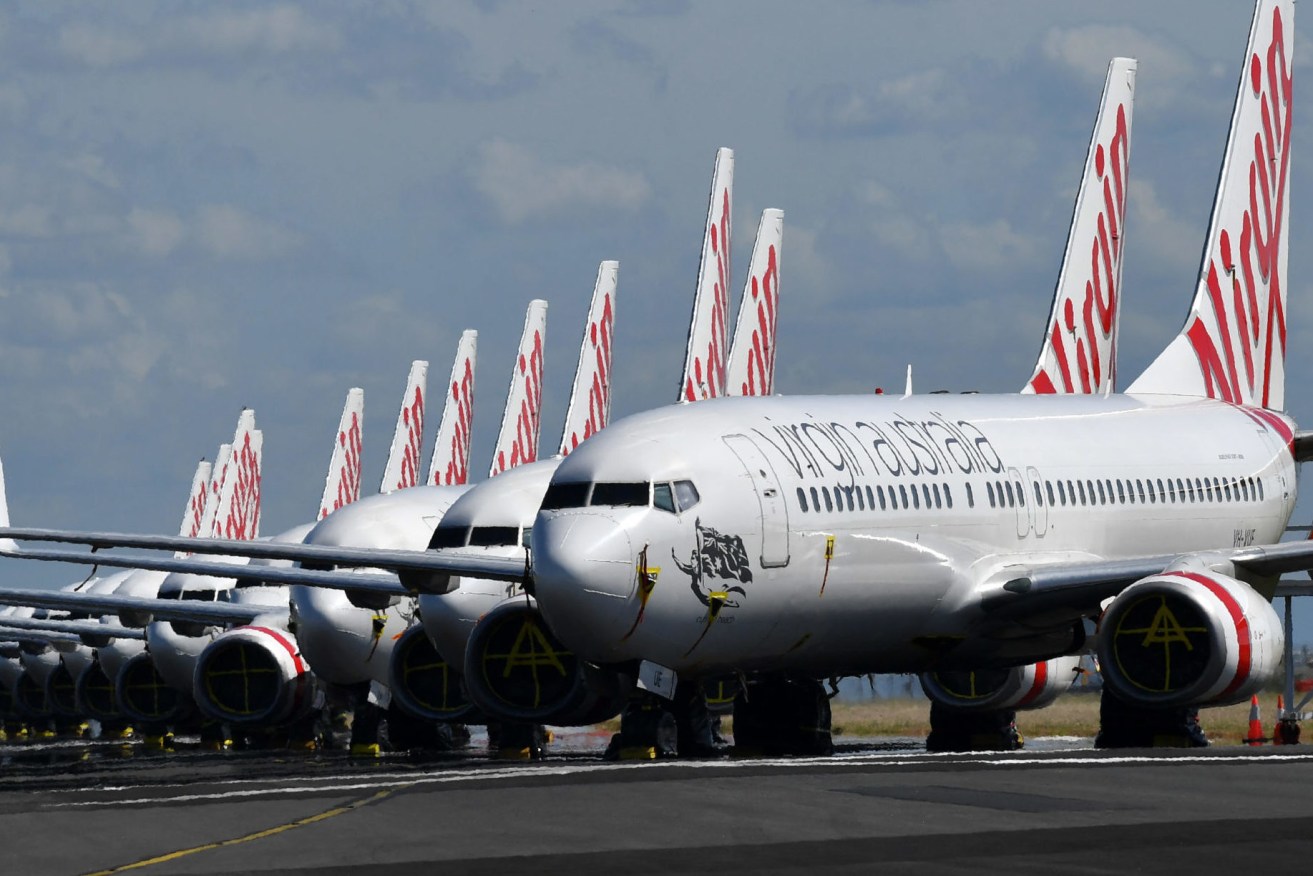Crippled carrier’s collapse was inevitable but clears runway for Virgin Mk II
ANALYSIS: Virgin Australia’s collapse was not only inevitable but necessary for its rebirth to take place, writes John McCarthy


Final bids for the airline close this week. (Photo: AAP Image/Darren England)
For the 10,000 Virgin workers and 6000 workers indirectly affected, it’s an awful time, but it was the only outcome that would allow for the airline to live on in some form.
Virgin is not Compass, an airline that had two shots at life in the early 1990s but the harsh truth is that the company’s management racked up so much debt ($5 billion) it was untouchable for any buyer. It had effectively become a penny dreadful stock with its debt rating at junk levels.
Had there never been a coronavirus and the subsequent collapse of the tourism sector, Virgin may have limped along but the debt was always a massive burden to carry. It struggled to make money and at some point the company would have been forced to recapitalise.
For several reasons, the Federal Government was right not to touch it. It’s unlikely to have ever been repaid and holding an equity stake would have meant carrying a dud company. It would have also been a step too far for a Liberal Government that has already been forced to dip its toe into the pool of market intervention.
Going into administration is not necessarily the end. In fact, it is likely to be the start of phase 2. The administrators will decide what happens now. It is likely to be busy fielding bids from private equity and airlines because there is a viable industry when Australia emerges from the shutdown.
Virgin’s operations will likely be pared back, staff could lose their jobs and the company will probably be sold off. What is unlikely is that it will be liquidated. There is still a viable business and it is of national importance to have two airlines. But the foreign owners of the Virgin have lost their money, including Richard Branson.
People who had paid for future travel are also likely to be losers.
What happens now?
The administrators have eight business days to call the first creditors meeting. Creditors are in two classes: unsecured and secured. The banks are usually secured and get priority in any repayment scheme. Employees are a special class of unsecured creditors. Their outstanding entitlements are usually paid in priority to the claims of other unsecured creditors, which include ticket holders.
At this meeting creditors have the option to replace the administrator and or create a committee of inspection, which is group that can assist the administrator. The administrator must investigate the company and report back to creditors. The administrator also has all the powers of a director to make decisions. At the second meeting of creditors, within 25 days of the administrators appointment, creditors get to decide on the company’s future. They can return it to the control of the directors, accept a deed of company arrangement or put the company into liquidation.












